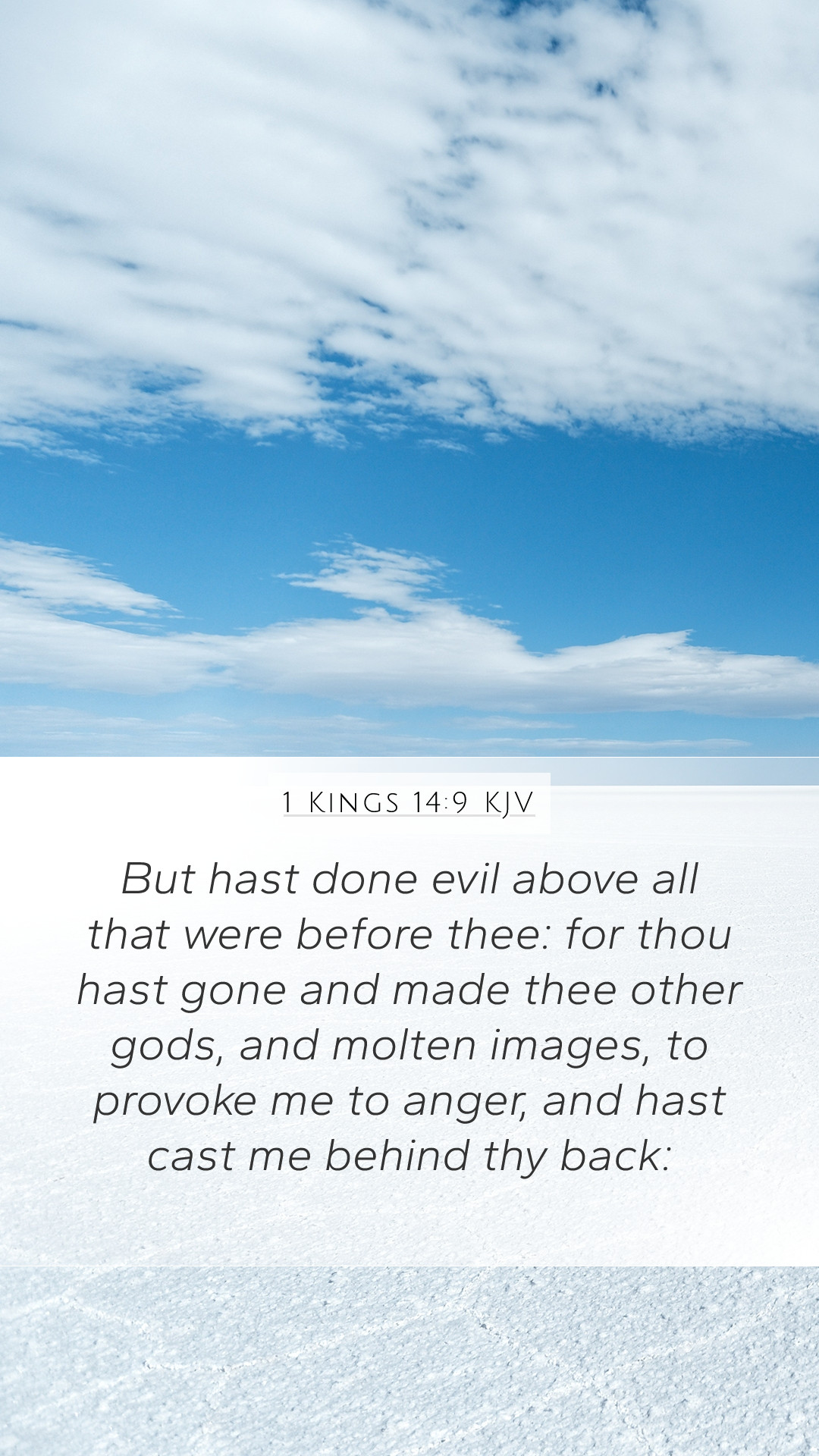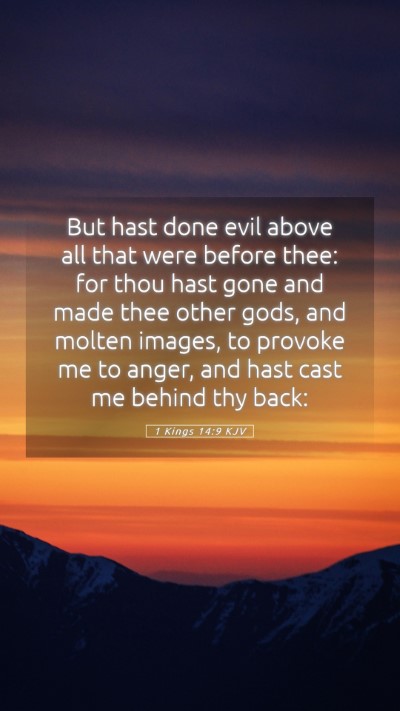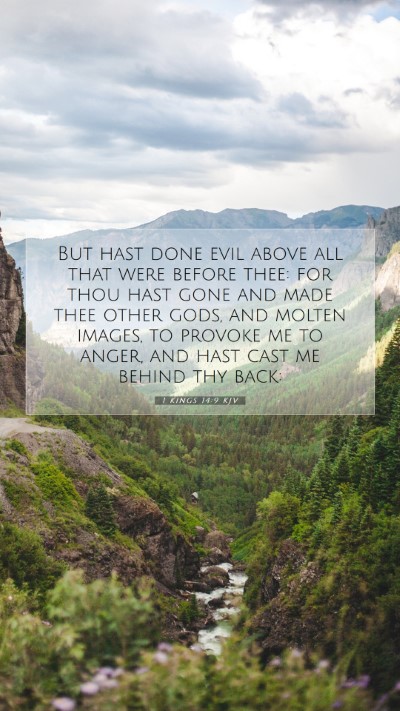Bible Verse Meaning and Commentary for 1 Kings 14:9
Verse: 1 Kings 14:9 - "But you have done evil above all that were before you; for you have gone and made you other gods, and molten images, to provoke me to anger, and have cast me behind your back."
The verse presents a critical view of King Jeroboam's actions, serving as a significant moment in the biblical narrative concerning idolatry and disobedience to God.
Contextual Background
- Historical Setting: This verse is situated during a tumultuous period in Israel's history after the division of the united kingdom. Jeroboam is king over Northern Israel and has instigated idolatry among the people.
- Character Analysis: Jeroboam's actions are seen as the culmination of a series of unfaithful acts. His decisions contrast sharply with the commands given to Israel regarding monotheism.
Commentary Insights
-
Matthew Henry
According to Matthew Henry, Jeroboam's sin was particularly grievous because it was intentional. He chose to lead his people away from God, igniting the divine anger against Israel. His creation of idols not only represented disobedience but also a betrayal of the covenant relationship between God and Israel.
-
Albert Barnes
Albert Barnes emphasizes the deepening corruption of Jeroboam. He notes that by placing idols in direct opposition to God's command, Jeroboam committed an act that challenged the very foundation of Israel's covenant identity. Barnes suggests that the repetition of such evils by Jeroboam is a call to recognize the dangers of idolatry.
-
Adam Clarke
Adam Clarke provides an extensive analysis of the implications behind the phrase "cast me behind your back." This imagery signifies a deliberate disregard for God's authority. Clarke indicates that this behavior not only threatens the spiritual vitality of a nation but invites divine judgment.
Theological Implications
This passage underscores the idea that turning away from God and embracing idolatry has profound theological implications. It is a reminder that faithfulness to God necessitates an ongoing commitment to His word and commandments.
Application for Today
- Understanding Scripture: This scripture emphasizes the consequences of leading others astray. It serves as a foundation for reflecting on personal and communal faithfulness to God.
- Applying Bible Verses to Daily Life: The exhortation is clear; believers are called to eschew idols—anything that takes precedence over their relationship with God.
- In-Depth Bible Verse Analysis: Analysis of Jeroboam's actions encourages self-reflection about modern-day "idols" that may vie for allegiance from believers today.
Cross References
- Exodus 20:3-5 - The command against idolatry.
- 2 Kings 17:21-22 - A further account of the consequences of idolatry in Israel.
- Jeremiah 2:13 - A rebuke of forsaking God, the fountain of living waters.
- Matthew 6:24 - The impossibility of serving both God and money (or idols).
Conclusion
The commentary provided for 1 Kings 14:9 presents a multifaceted approach that informs our understanding of idolatry's consequences and God's call to fidelity. It highlights the importance of scripture study in both historical and contemporary contexts, emphasizing the perpetual relevance of biblical teachings.
Approaching this verse with tools such as Bible study guides, Bible study resources, and Bible study courses allows for a deeper understanding of its significance and application today.


